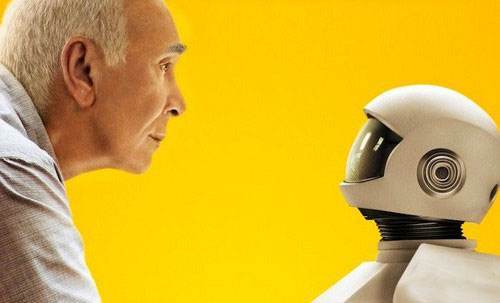
Privacy statement: Your privacy is very important to Us. Our company promises not to disclose your personal information to any external company with out your explicit permission.

This article is produced by NetEase Smart Studio (public number smartman 163). Focus on AI and read the next big era!燑/font>
[Netease smart news August 25 news] mental and mental health challenges are often closely related. At least I think so, although we all know there are many other reasons behind mental health problems.
When we talk about the potential of artificial intelligence (AI) and robots to achieve conscious and rational capabilities, this means that we are implying that they may one day have their own ideas.
If this is the case, then, like humans, are we providing opportunities for AI and robots to suffer from mental illness? To some extent, mental illnesses may occur in artificial intelligence, which means that they may also be dysfunctional due to the ability of consciousness.

This situation, even in the laboratory environment, means that we have more understanding of some of the mechanisms and events that lead to mental illness and thus contribute to prevention and treatment.
For me: "Should we allow AI and robots to be conscious, or they will eventually imitate people's consciousness - this means that artificial intelligence will have mental health problems?"
This also led me to ask myself whether artificial intelligence will know the difference between happiness and pain by establishing consciousness. Sadness and happiness?
A few days ago I chatted with several friends and they did not want to have a grumpy robot. It makes sense that, like human emotions, those who seem always happiest are often those who hide more emotions. To a certain extent, they must stand up.

There is still another point to consider: If the robot is about to show signs of mental illness, then is the robot programmed to have mental disorders and challenges?
If robots have free will, will they violate the original procedure and have symptoms? If I violated the original procedure and created a mental illness, does this represent a human-like consciousness that has developed a mental illness that has led to a human-like mental illness?
My next point is how we should treat artificial intelligence and mental illness. Who should treat them? If we give them a human-like consciousness, do they have the right to be treated?

Will the way we treat people with mental illness work? Whether it is medicine or surgery, what is artificial intelligence? Recode?
However, if the robot has a clear head, then by reprogramming and changing conscious thinking without consent, does it mean that we infringe certain rights? Obviously, this may be a very important topic. Both Oxford and Harvard people can think about this issue from a philosophical point of view. It's ridiculous to think of mental illness only with artificial intelligence and robots, and this may never happen.
However, even if my view of the world is limited, I do not believe it. If there is one thing that is clear, that is, technological progress will not stop. We need to look forward to the future at a faster rate.
We must consider whether the behavior of artificial intelligence and robots will constitute a problem. Through these, we may also open up new ways to understand human thinking, and how it is used by artificial intelligence minds, thus affecting mental illness.
After a hundred years I was gone but I am still very curious. (Selected from: Tech燱orld犠髡撸箧AVID燤urray-Hundley牨嘁耄 and 庵 庵 庵 庵 庵 ::jixinyue8871)
February 13, 2023
February 10, 2023
이 업체에게 이메일로 보내기
February 13, 2023
February 10, 2023

Privacy statement: Your privacy is very important to Us. Our company promises not to disclose your personal information to any external company with out your explicit permission.

Fill in more information so that we can get in touch with you faster
Privacy statement: Your privacy is very important to Us. Our company promises not to disclose your personal information to any external company with out your explicit permission.